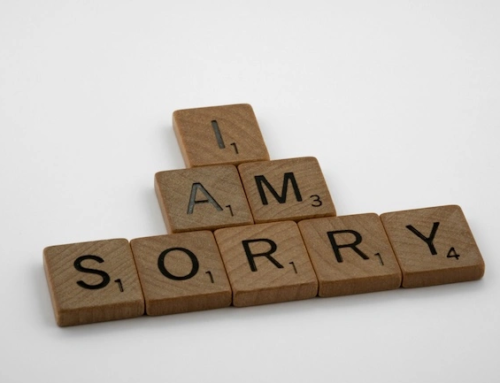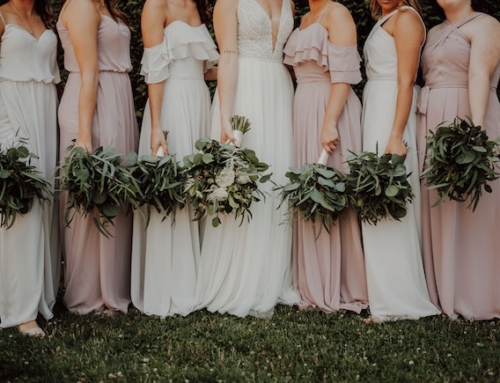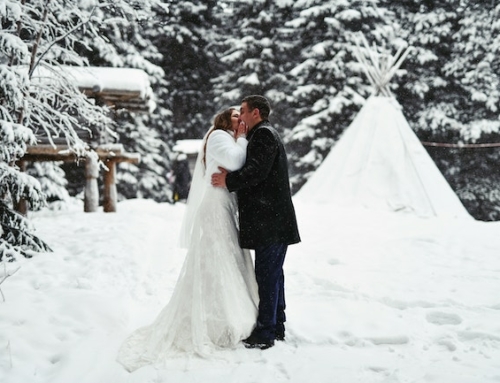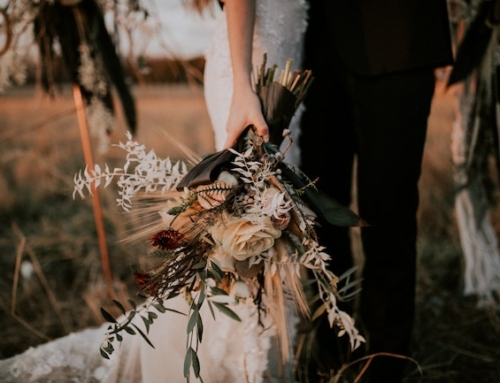Your wedding day is one of the most important days of your life, but planning for it can be overwhelming. Having a wedding planning checklist is crucial to ensure that everything is well-organized and accounted for during the wedding planning process. It can help couples keep track of their progress, deadlines, and tasks that need to be completed, making the process more manageable and less stressful.
A checklist can also serve as a reference point for couples, allowing them to stay on top of their to-do list and prioritize tasks accordingly. By having a comprehensive and detailed wedding planning checklist, couples can stay on track and have the wedding of their dreams without any last-minute surprises or oversights.
So, let’s get started and make sure you have everything you need to create a truly memorable day!
Timeline

According to a survey conducted by WeddingWire in 2020, the average engagement period is around 15 months, and couples tend to start planning their wedding around 9-11 months before the wedding date. However, the planning timeline can vary depending on factors such as the complexity of the wedding, availability of the venue, and personal preferences of the couple.
Creating a wedding planning timeline is essential to ensure that everything runs smoothly and on time. It helps to break down the planning process into manageable tasks and to make sure that everything is done in the right order. Here’s a timeline for planning a wedding:
12-18 Months Before the Wedding:
- Determine budget
- Choose wedding date
- Decide on wedding style/theme
- Book ceremony and reception venues
- Book officiant
- Hire wedding planner (optional)
- Compile guest list
9-12 Months Before the Wedding:
- Book caterer and select menu
- Book photographer and videographer
- Book florist
- Book musicians or DJ
- Order wedding dress and bridesmaid dresses
- Book hair and makeup artist
- Create wedding website
- Send save-the-date cards
6-9 Months Before the Wedding:
- Book transportation
- Book accommodations for out-of-town guests
- Choose wedding cake/desserts
- Select wedding favors
- Finalise menu with caterer
- Purchase wedding rings
- Schedule engagement photoshoot
3-6 Months Before the Wedding:
- Order wedding invitations
- Finalise details with vendors
- Purchase wedding favors
- Plan rehearsal dinner
- Attend premarital counseling (if desired)
1-3 Months Before the Wedding:
- Obtain marriage license
- Finalise seating chart
- Confirm details with vendors
- Plan wedding day timeline
- Arrange wedding rehearsal (eg: guest check-in)
1 Week Before the Wedding:
- Confirm all details with vendors
- Pack for honeymoon
- Have wedding rehearsal
- Deliver any final payments to vendors
Wedding Day:
- Get married!
Budget

Weddings can be expensive, and without a budget in place, costs can quickly spiral out of control. That’s why creating a wedding budget is a crucial step in the wedding planning process. By setting a budget, couples can determine which expenses are most important to them and allocate their funds accordingly.
A budget helps keep couples accountable and ensures that they don’t spend more than they can afford. Money is one of the biggest sources of stress in a relationship. By having a clear understanding of what they can afford, couples can avoid unnecessary arguments and focus on enjoying their special day.
Tips For A Realistic Budget
When creating a wedding budget, it’s important to be realistic about what can be afforded. Here are some tips for creating a realistic budget and sticking to it:
- Determine your overall budget: Start by figuring out how much money you can realistically spend on your wedding. This number will be the foundation of your budget.
- Allocate your funds: Once you have your overall budget, determine how much you want to spend on each aspect of your wedding, such as the venue, catering, and entertainment.
- Keep track of your spending: As you start making purchases and paying deposits, keep track of your spending to ensure that you stay within your budget.
- Be flexible: It’s important to be flexible with your budget as unexpected expenses can arise. It’s a good idea to set aside some money for contingencies.
How To Save Money
While it’s important to stick to your budget, it’s also possible to save money without sacrificing quality. Here are some suggestions:
- Choose an off-peak wedding date: Venues and vendors often charge more for weddings during peak season. Consider getting married during the off-peak season to save money.
- DIY: Consider DIY projects for decor and favors to save money.
- Negotiate: Don’t be afraid to negotiate with vendors to get the best possible price.
- Trim your guest list: The more guests you have, the more expensive your wedding will be. Consider trimming your guest list to save money on catering and other expenses.
Guest List

Organising the guest list and seating arrangement for a wedding is crucial for several reasons. First, it helps to ensure that there is enough space and seating for all guests. This is especially important if the wedding is being held in a smaller venue, where space can be limited.
Secondly, organising the guest list and seating arrangement allows the couple to make sure that important people in their lives are not left out and are given the best seats, while also ensuring that guests who may not know many other people are seated with others they may have things in common with.
Additionally, organising the guest list and seating can help to prevent potential conflicts or awkward situations by keeping certain guests separate or placing them at a safe distance from each other.
Lastly, having a well-organized seating arrangement can enhance the overall experience for guests, as they will feel more comfortable and at ease knowing where they will be seated and with whom they will be sitting. Overall, taking the time to properly organise the guest list and seating arrangement can make a big difference in creating a successful and enjoyable wedding celebration.
What To Do
Organising the guest list and seating for a wedding can be a daunting task, but it is important to ensure a smooth and enjoyable experience for everyone. Here are some steps to help you organise your guest list and seating:
- Determine the number of guests: Before creating a guest list, it is important to determine the number of guests you are able to accommodate at your wedding. This will help you decide how many people you can invite.
- Create a guest list: Once you have determined the number of guests, create a list of all the people you want to invite. It is important to be realistic about the number of people you can accommodate and prioritize accordingly.
- Categorize the guests: Categorize the guests based on their relationship to you and your partner, such as family, friends, coworkers, etc. This will help you determine the seating arrangements and table assignments.
- Decide on the seating style: There are various seating styles to choose from, such as banquet, family-style, or round tables. Decide on the seating style that works best for your venue and guest list.
- Create a seating chart: Once you have determined the seating style, create a seating chart that includes the names of all the guests and their table assignments. This will help ensure that everyone knows where they are sitting and can easily find their seat.
- Communicate with guests: Communicate with your guests about their seating arrangements and any special considerations, such as dietary restrictions or accessibility needs.
- Review and finalize: Review the guest list and seating chart to ensure accuracy and make any necessary changes. Finalize the guest list and seating chart with your venue and wedding coordinator.
Venue

Selecting the perfect wedding venue is one of the most important decisions to make during wedding planning. The venue sets the tone and atmosphere for the entire event, so it is crucial to choose a location that fits the style and vision of the wedding.
Questions To Ask
Here are a checklist of questions to ask when touring potential wedding venues:
- Is the venue available on my preferred wedding date?
- How many guests can the venue accommodate?
- What is the rental fee for the venue, and what is included in the price?
- Are there any additional fees or taxes I should be aware of?
- What is the deposit amount, and when is it due?
- What is the cancellation policy?
- What is the venue’s alcohol policy? Can we bring our own alcohol, or do we need to use a specific vendor?
- Are there any restrictions on decor or music?
- Is there parking available for guests? If so, is it included in the rental fee?
- What are the catering options, and are there any preferred vendors?
- Is there a kitchen available for use by the caterer?
- Is there a bridal suite or dressing room available for use on the wedding day?
- What is the venue’s policy on outside vendors, such as photographers or DJs?
- Are there any noise restrictions or curfews we should be aware of?
- Are there any accommodations nearby for out-of-town guests?
These questions should help you gather all the necessary information to make an informed decision about which wedding venue is the best fit for your needs and budget.
What To Do
Steps to take once a wedding venue has been chosen:
1.Finalise Details with the Venue
- Confirm availability of the venue on your desired wedding date
- Discuss and finalize the venue’s layout, decor options, and any restrictions
- Determine the start and end time of the event
- Review and sign the venue contract
- Agree on the payment schedule and amount of deposit required
2. Book Other Vendors
- Book any vendors that are reliant on the venue details such as catering, decor, and lighting vendors
- Secure any rentals required from the vendor (chairs, tables, etc.)
3. Coordinate Logistics
- Schedule a walkthrough with the venue coordinator to discuss logistics, such as load-in and out times and vendor access
- Determine any special arrangements required for ceremony, reception or both
- Make arrangements for parking and transportation for the wedding party and guests
4. Plan for Backup
- Create a contingency plan in case of inclement weather or unexpected circumstances
- Work with the venue coordinator to make sure there are contingency options available
5. Final Details
- Finalize the guest count and menu with the caterer
- Arrange for delivery and pick up of any necessary items from the venue
- Coordinate with the venue and vendors for any setup and tear down requirements
Vendors

Hiring vendors with experience in the wedding industry is essential to ensure that they understand the timeline and the standard of work that’s expected. Professional vendors can help make suggestions and provide insights that can help streamline the planning process and alleviate any potential issues.
Common Wedding Vendors
Here is a list of common wedding vendors that couples may need to consider:
- Wedding planner/coordinator
- Venue
- Caterer
- Photographer
- Videographer
- Florist
- DJ/Band/Musicians
- Officiant
- Hair and makeup artist
- Baker/Cake decorator
- Rental companies (e.g. chairs, tables, linens)
- Transportation (e.g. limousine, party bus)
- Stationery (e.g. invitations, save-the-dates, programs)
- Favors and gifts
- Accommodations (e.g. hotel blocks for guests, honeymoon)
Keep in mind that not all weddings will require every vendor on this list, and some couples may need to hire additional vendors depending on their specific needs and preferences.
What To Do
Below is an outline of the steps to take once a venue has been chosen for a wedding:
- Review the contract: Once you have selected a venue, request a copy of the contract and carefully review it to ensure that it includes all of the agreed-upon details such as the date, time, and location of the event, the services that the venue will provide, and the fees associated with the rental.
- Confirm availability: Before signing the contract, confirm with the venue that the date and time you have chosen is still available.
- Submit a deposit: Many venues require a deposit to secure the reservation. Make sure you understand the deposit amount and due date, and that you have the necessary funds available.
- Ask about vendor restrictions: Some venues have restrictions on the vendors that can be used for the event. Make sure to ask about any vendor restrictions and confirm that your chosen vendors are allowed.
- Schedule a walkthrough: Schedule a walkthrough of the venue with the event coordinator to get a better understanding of the layout and to discuss any questions or concerns you may have.
- Finalize details: As the wedding date approaches, work with the event coordinator to finalize details such as the menu, seating arrangement, and timeline for the event.
- Pay final balance: The venue may require the final balance to be paid a certain number of days before the event. Make sure to confirm the due date and submit payment on time.
- Confirm logistics: A few days before the event, confirm logistics with the venue such as the setup time, parking arrangements, and any special requests or requirements.
Attires

Choosing wedding attire can be a fun and exciting process, but it can also be overwhelming with so many options to choose from. The first step in choosing your wedding attire is to determine your budget. This will help you narrow down your options and avoid overspending.
Start researching and gathering inspiration for your wedding attire. Browse online, look through wedding magazines, and create a Pinterest board to save your favorite looks. Once you have a general idea of what you’re looking for, schedule appointments with bridal shops, tuxedo rental shops, and bridesmaid dress retailers to start trying on options.
Try on a variety of options to determine what styles and silhouettes are most flattering for you and your wedding party. Don’t be afraid to step outside of your comfort zone and try on something unexpected. When selecting your wedding attire, consider how the pieces fit and any alterations that may be needed to ensure a perfect fit. Be sure to factor in the cost of alterations when determining your budget.
Once you have chosen your wedding attire, shop for accessories to complete your look. This may include shoes, jewelry, and hair accessories. Schedule final fittings for you and your wedding party to ensure that everything fits perfectly and make any necessary alterations.
Finally, pick up your wedding attire a few days before the wedding to ensure everything is in order and ready to go for the big day.
Decor and Details

Wedding decor and details may seem like small things, but they can really enhance the overall aesthetic and vibe of a wedding. These elements can also serve as a way to infuse personal touches and add a unique flair to the celebration. Here are some tips for selecting and creating wedding decor and details:
- Consider your wedding theme and colors: Your decor and details should complement your wedding theme and color scheme. Choose items that fit within your chosen aesthetic and enhance the overall look and feel of your wedding.
- Prioritize the most important details: While it’s tempting to try to include every Pinterest-worthy detail, it’s important to prioritize the details that are most important to you. This could be anything from custom signage to a unique guestbook to special favors.
- Don’t be afraid to DIY: DIY projects can add a personal touch to your wedding and save you money in the process. Just make sure to choose projects that are manageable and don’t require too much time or skill.
- Shop around for deals: Wedding decor and details can add up quickly, so it’s important to shop around for deals and discounts. Look for sales on decor items, consider bulk ordering favors or flowers, and be open to renting items rather than buying them outright.
- Get input from your vendors: Your wedding vendors, such as your florist or event planner, can offer valuable insight and ideas for wedding decor and details. Don’t hesitate to ask for their input or recommendations.
- Think beyond the reception: While the reception is the main event, don’t forget about other wedding details, such as ceremony decor, wedding party attire, and welcome bags. These elements can also add to the overall ambiance of your wedding.
- Ensure proper setup and placement: When it comes to wedding decor and details, proper setup and placement is key. Make sure to work with your wedding venue and vendors to ensure that everything is set up correctly and in the right location.
Day-of Coordination

A day-of coordinator, also known as a wedding coordinator or wedding planner, can be a crucial part of a successful wedding. This person is responsible for ensuring that everything runs smoothly on the day of the wedding, from managing vendors and coordinating the ceremony to overseeing the reception and handling any unforeseen issues that may arise.
Why Do I Need This
Here are some reasons why a day-of coordinator can be important:
- Stress relief: A day-of coordinator takes the stress off of the couple and their families, allowing them to relax and enjoy their special day.
- Attention to detail: A day-of coordinator is trained to catch the small details that might be overlooked, ensuring that everything runs smoothly and nothing is missed.
- Vendor management: A day-of coordinator communicates with vendors to ensure they arrive on time and fulfill their duties as planned.
- Problem-solving: A day-of coordinator is experienced in dealing with any issues that may arise on the day of the wedding, and can quickly and efficiently solve any problems.
What To Do
If you’re considering hiring a day-of coordinator, here are some tips for finding and hiring the right one:
- Start early: Wedding coordinators can be in high demand, so it’s important to start your search early.
- Ask for referrals: Ask friends, family, and wedding vendors for recommendations.
- Do your research: Check online reviews, visit websites, and read up on their experience and credentials.
- Schedule consultations: Meet with potential coordinators to discuss your vision and get a sense of their personality and style.
- Review contracts carefully: Make sure to read over the contract carefully and understand all fees and services included.
- Follow up: Once you’ve hired a coordinator, follow up with them regularly to ensure everything is on track and they have everything they need to execute your vision.
Remember, a day-of coordinator can be a valuable investment in ensuring that your wedding day is stress-free and runs smoothly.
Planning a wedding can be overwhelming, but with the right checklist, tips, and strategies, it can be a fun and exciting process. A wedding planning checklist is a valuable tool to ensure that nothing important is overlooked, from choosing the venue to hiring vendors to selecting decor and details. By utilizing the tips and resources provided in this article, couples can create the ultimate wedding planning checklist and enjoy a stress-free planning experience.










